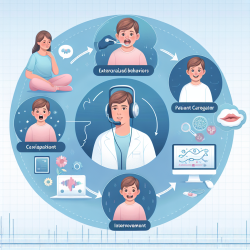The ability to recognize emotions is fundamental to human interaction. However, for individuals with Parkinson's disease (PD), this ability can be significantly impaired. Recent research titled "Emotion recognition in early Parkinson’s disease patients undergoing deep brain stimulation or dopaminergic therapy: a comparison to healthy participants" sheds light on this issue and offers insights that practitioners can use to improve their therapeutic approaches.
The Study at a Glance
This study focused on early-stage Parkinson's disease (EPD) patients, exploring how different therapies—optimal drug therapy (ODT) and deep brain stimulation (DBS)—affect emotion recognition. The research compared these patients with healthy elderly controls (HEC) and young controls (HYC) using tasks that assessed their ability to recognize emotions through facial expressions, vocal cues, and combined stimuli.
Key Findings and Their Implications
- Impaired Emotion Recognition: EPD patients showed significant impairment in recognizing emotions compared to healthy controls. This impairment was evident across various tasks involving facial and vocal stimuli.
- No Differential Impact of Therapies: The study found no significant difference in emotion recognition abilities between patients receiving only drug therapy and those receiving both drug therapy and DBS. This suggests that neither therapy type nor state significantly alters emotion recognition performance.
- Aging Effects: Healthy elderly controls also exhibited some decline in emotion recognition abilities compared to younger controls, particularly in recognizing emotions through vocal cues.
Practical Applications for Practitioners
The findings of this study offer several practical applications for practitioners working with PD patients:
- Early Assessment: Incorporating emotion recognition assessments into early diagnostic procedures can help identify deficits before they exacerbate. This proactive approach could lead to earlier interventions aimed at preserving social cognition.
- Tailored Interventions: Understanding that therapies like DBS do not necessarily improve emotion recognition can guide practitioners to develop alternative strategies focused specifically on enhancing social cognition skills.
- Aging Considerations: Recognizing the natural decline in emotion recognition with age can help tailor interventions for older adults, ensuring they remain socially engaged and communicative.
The Call for Further Research
This study highlights the complexity of emotion recognition impairments in PD and underscores the need for further research. Future studies could explore the potential for cognitive training programs specifically designed to improve emotion recognition skills in PD patients. Additionally, examining the long-term effects of different therapies on social cognition could provide deeper insights into managing non-motor symptoms of PD.
The integration of emotion perception tests into routine neuropsychological assessments for PD could significantly enhance patient care by identifying those who may benefit from targeted interventions. As researchers continue to explore these avenues, practitioners are encouraged to stay informed and consider how these insights might influence their practice.










